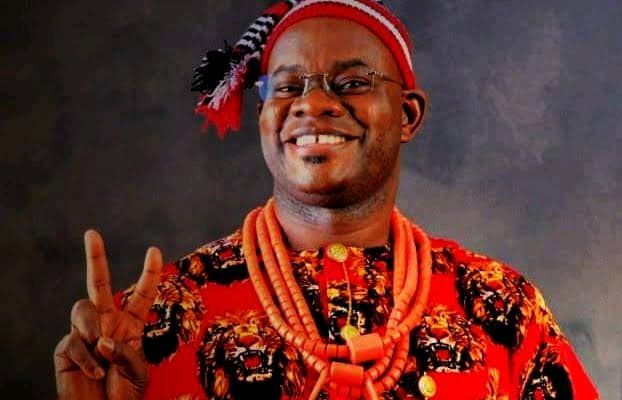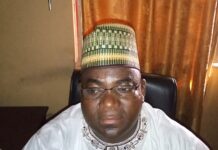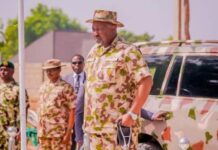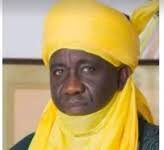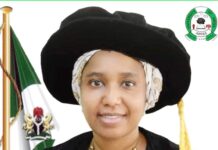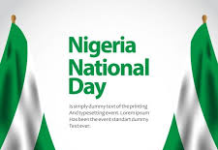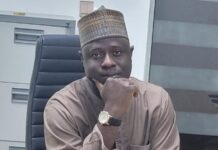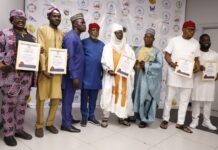2023: Yahaya Bello, the Authentic Unifier Nigeria Needs
By Nafisat Bello
“True equality means holding everyone accountable in the same way, regardless of race, gender, faith, ethnicity or political ideology.”
– – Monica Crowley
Nation-building can be very daunting, especially in countries that are deeply polarised along ethnic and religious fault lines. And we also live in a society that labels us with a colour, religion or ethnicity which divides us, but also allows us to find pride in our identity.
Historically, Nigeria, like many countries in sub-Saharan Africa, is made up of different ethnic groups, that are around the control of state power, resource allocation, and citizenship, over 1000 dialects, religious, and regional groups. This diversity which is supposed to be a blessing becomes a problem when mismanaged by poor leadership or lack of justice and equity in the system. The raging internal contradictions therefore sometimes lead to mutual suspicion, tension, violent conflicts and even threats of secession.
Ethnic politics has also been a clog in the wheel of political advancement of the nation and leaders with national outlook do not often rise to the highest office in the land. More often than not, elections have been based on such inanities as zoning, where candidates come from etc, rather than the content of the character of the candidates.
Although many positive steps have already been taken by the previous and present democratic governments in the direction of addressing this conflict and other problems facing Nigeria, it is clear that more has to be done especially in the light of the recent heightening of ethnic tensions.
In any case, there is no need to sweat further when the solution to a problem has shown its face. This solution I am talking about is a man of grace, faith and providence. A product of destiny who has taken it upon himself to not only implement the solutions to the basic problems of Kogi state people but who is also offering more elaborate and comprehensive solutions to the Nigerian situation.
On January 27, 2016, upon being sworn-in, Governor Yahaya Bello of had one mission in mind, to ‘unite the people’.
Diversity is supposed to be a blessing to the state but unfortunately it was a representation of disunity, distrust and mutual suspicion among the people. But Bello was not prepared to preside over such a chaotic situation.
During his inaugural speech, he refreshed the people’s memories on the old Nigerian national anthem: “Though tribes and tongues may differ, in brotherhood we stand”. And also during his second inaugural speech on January 27, 2020, Bello rehearsed how he successfully upturned the table that had the four legs of godfatherism, tribalism, class consciousness and religious divides which, he said “had distorted social equity and equality among Kogites.”
The governor therefore came up with the ‘EBIGO’ policy. An acronym from the names of the major ethnic groups in the state: (Ebira, Igala and Okun). The policy talks about the equitable distribution of amenities and balance in appointments where no section of the state is short-changed. Bello knew the major problem was the unfair distribution of amenities and appointments. So he decided to fix it and that was a masterstroke. It takes selfless leaders to do this.
Read Also:
And to exemplify the unity expressed in the old anthem, Governor Bello as an Ebira man had, in his first term, appointed Chief Edward Onoja, an Igala man as his Chief of Staff and now he is the Deputy Governor. In fact, it will interest you to know that, it is the first time in the history of Kogi State that a Chief of Staff would be appointed from a different tribe other than that of the Chief Executive. To him the state is bigger than the sum of individuals’ narrow interests.
Kogi state is strategically located in the middle and heart of the nation. It’s a combination of all the tribes in Nigeria. The Hausa/Fulani are doing very well. The Igbo are in huge number, doing business across the country while the Yoruba occupy sensitive parts of the state. Governor Bello has created robust points of convergence for all these people to not only live in peace and harmony but to also contribute significantly to the development of the state.
Kogi state is made up of majority (not overwhelming) Muslims and a lot of Christians. More often than not, a Muslim is always elected as governor but a Christian often emerge as Deputy. Prior to the coming of Governor Bello, a massive Mosque had always been in the Government House for Muslims to do congregational prayers but there was never befitting Church for Christians to gather and worship. The Christian Association of Nigeria (CAN) and other religious groups had always complained of this until Governor Bello broke the jinx and put up a proper Church in the Government House that was commissioned with pomp and pageantry and which was well celebrated by CAN as a symbol of the Governor’s commitment to unity and religious harmony in the state.
Governor Bello has also a couple of times stepped out of his comfort zone to proffer solutions to national problems that border on disunity and ethnic tension. When the issue of herders versus farmers were in the front burner and some governors in the North Central and Southern parts of the country were making laws and introducing policies that the cattle herders found discriminatory, Governor Bello assured the country that herders were welcome in Kogi, he also created an enabling environment for them to thrive without disturbing the peace or disrupting the livelihoods of farmers. It takes a genius to strike this delicate balance and make both farmers and herders happy at the same time!
The hardworking governor of Kogi state also intervened at the national level when the trade association in charge of taking food items like onions, tomatoes, cattle etc to the Southern parts of the country decided to embark on strike over the constant attacks on their truck drivers and other northerners in the South due to the tension caused by the activities of secessionists like Sunday Igboho and Nnamdi Kanu. This was a total strike action that was meant to starve the Southerners and cause food inflation in that part of the country. Within hours of the commencement of the strike action, Governor Bello stepped in and appealed to the association to, in the spirit of brotherhood and our common humanity, rescind the decision to starve the people and make life difficult for them. Governor Bello made President Muhammadu Buhari and Southern leaders to grant all the requests of the association, especially that of guaranteeing their safety and security, in order to make them go back to business.
The piece is informed by the emergence of former Vice President Atiku Abubakar as the Peoples Democratic Party (PDP) presidential candidate in the 2023 general elections. Atiku won the party primaries on the basis of his campaign to unify the country.
Considering the fact that Governor Bello has already started this unification project since he became governor, long before he asked to lead Nigeria, the All Progressives Congress (APC) needs to look inwards and choose him as its flagbearer ahead of next year’s election. He is of course a man with proven track record to deliver both in terms of getting the votes and also ensuring good governance as President.
Nigerian youths, women and the generality of voters will prefer a younger unifier with recent examples of his efforts to an older, self-acclaimed unifier.
Bello is the man to lead APC to success in 2023.

